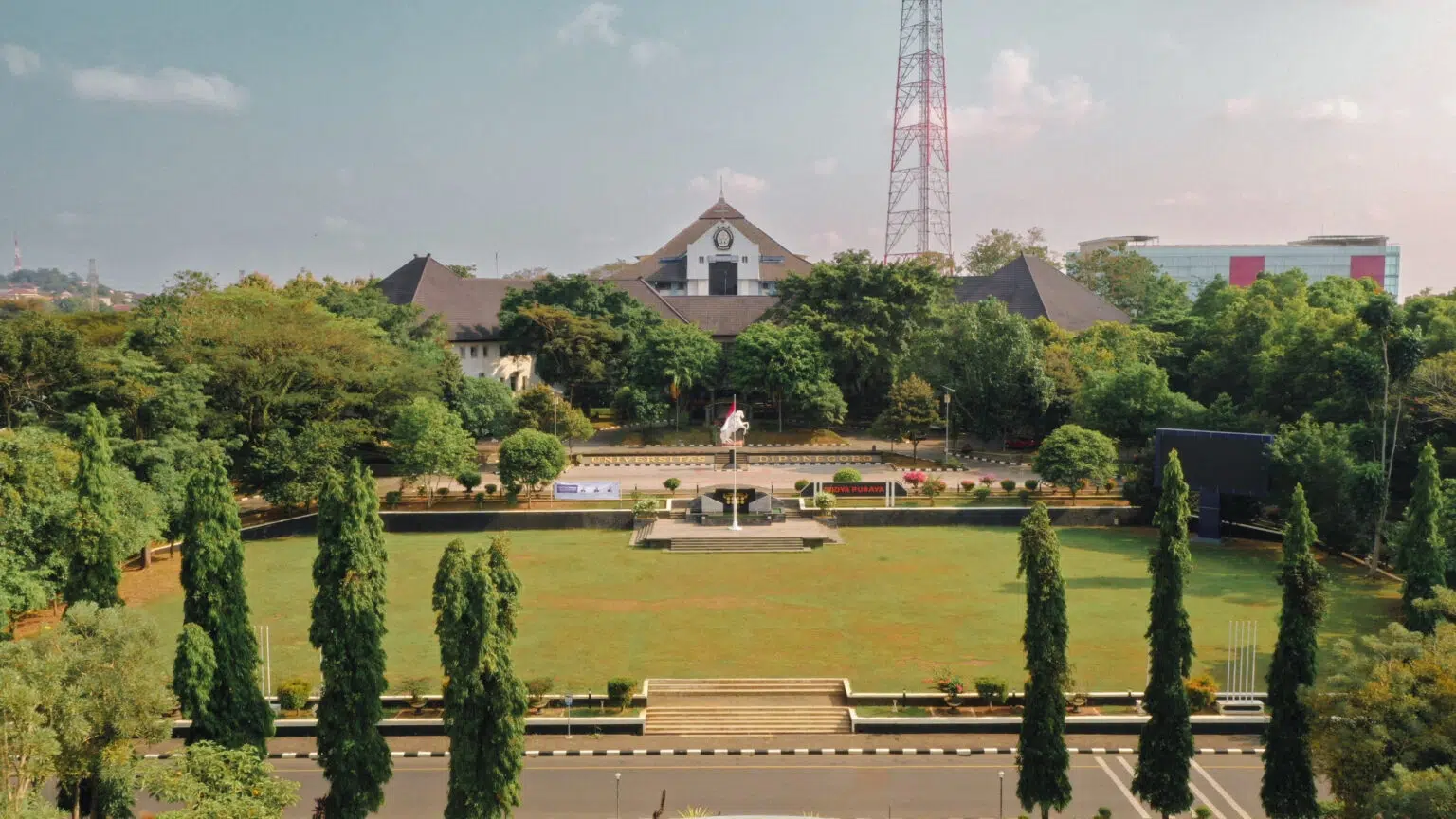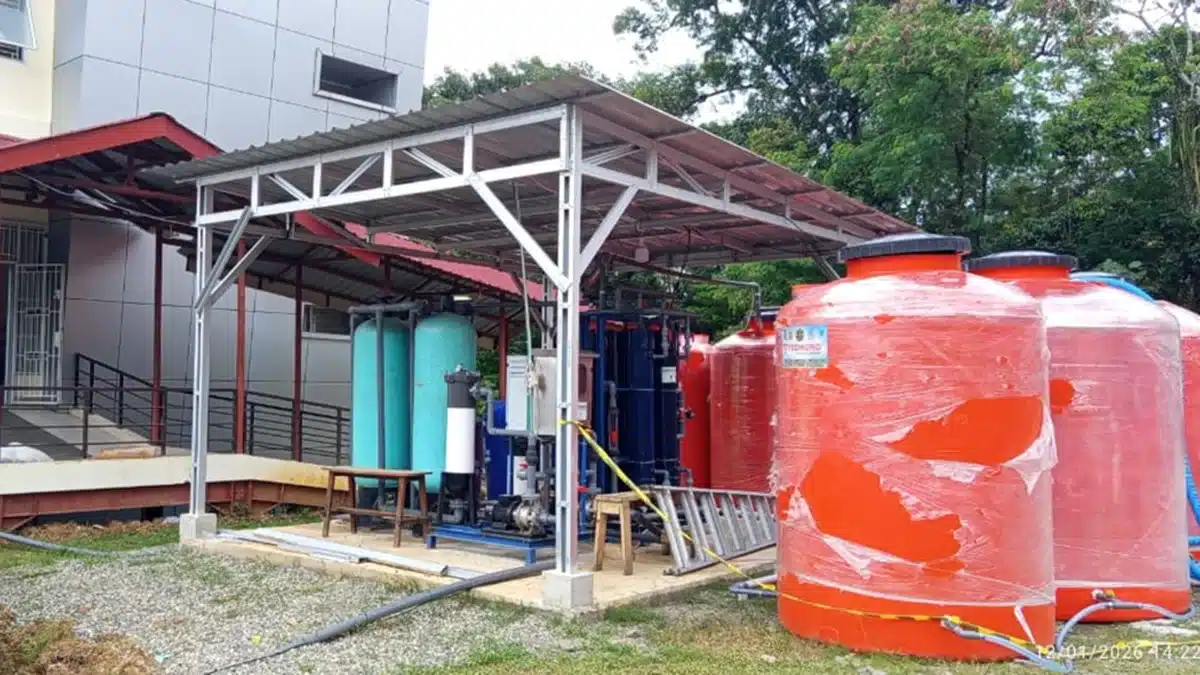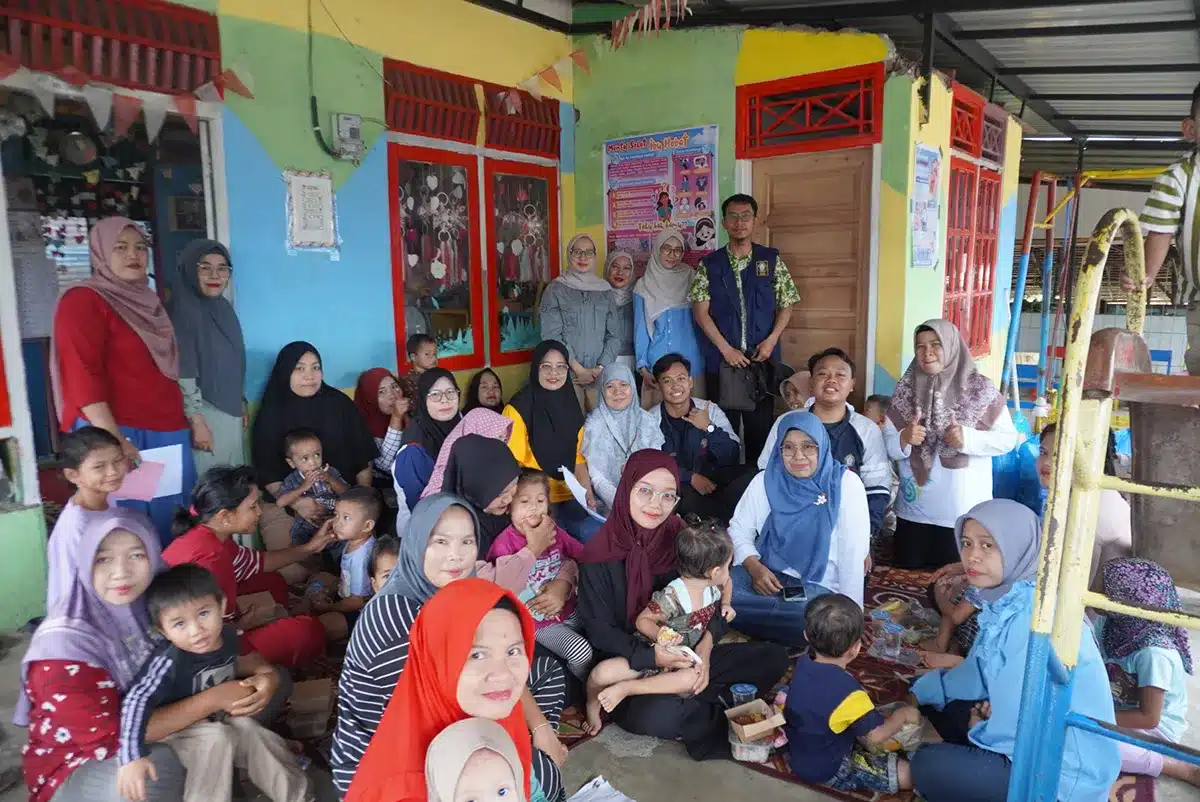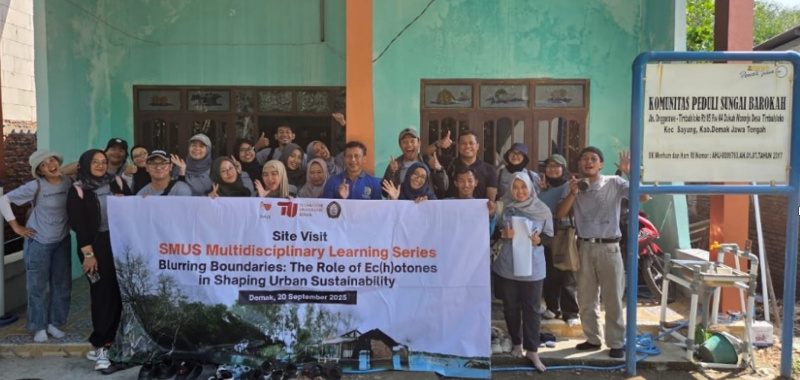UNDIP, Semarang (20/ 09) – Department of Urban and Regional (DURP) from the Faculty of Engineering Undip, as the core partner of the Global Center of Spatial Methods for Urban Sustainability (SMUS) collaborative network, coordinated by Technische Universität (TU) Berlin, supported by DAAD Exceed from the Government of Germany, has conducted a site visit to Timbulsloko Village, Sayung Sub-district, Demak, on Saturday, September 20, 2025.
This activity is part of the SMUS Multidisciplinary Learning Series, which is designed as a platform for integrating academic and field activities under the overarching theme Blurring Boundaries: The Role of Ec(h)otones in Shaping Urban Sustainability. The program aims to promote interdisciplinary learning and research on ecotones, understood as transitional ecological zones between two different ecosystems, for example, coastal areas that serve as the transition between land and sea.
During the visit, four lecturers from the DURP Undip along with fourteen participants of the SMUS Multidisciplinary Learning Series, joined field visits to the floating house in Dukuh Timbulsloko and the mangrove area in Dukuh Wonorejo. Through this activity, participants had the opportunity to directly observe the dynamics of the coastal ecotone in Sayung, Demak, and to understand how local communities adapt to environmental challenges such as tidal flooding and coastal erosion.
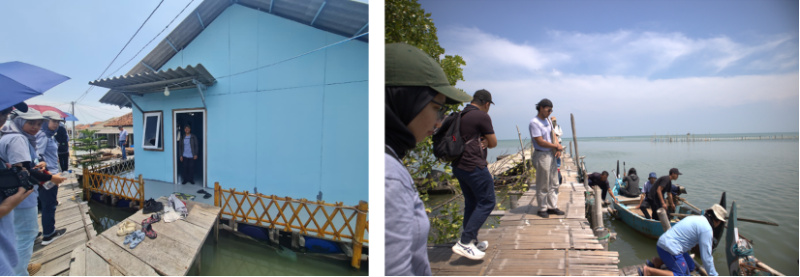
Field Visits to the Floating House and Mangrove Area in Timbulsloko
Through this site visit, the lecturers and participants also had the opportunity to engage in discussions with local leaders from Timbulsloko Village, namely Mat Saeri from Dukuh Wonorejo and Roni from Dukuh Timbulsloko. The discussion provided profound insights into community adaptation efforts and local wisdom in responding to the ongoing environmental changes in the dynamic coastal area.
Participants not only learned about technical adaptation strategies but also explored the social and cultural values that underpin community resilience. The exchange with Mat Saeri and Roni opened new perspectives on integrating local knowledge with academic and policy approaches to shape coastal ecotones as both ecological buffers and vital living spaces for communities.
This activity is expected to enrich research on ecotone areas as ecological transition zones that play a vital role in maintaining environmental balance. In addition, through the SMUS Multidisciplinary Learning Series, it is also expected to strengthen Undip’s position within international academic networks.
The activity further aims to make a tangible contribution to the achievement of the Sustainable Development Goals (SDGs), particularly Goal 11 (Sustainable Cities and Communities), Goal 13 (Climate Action), Goal 14 (Life Below Water), and Goal 17 (Partnerships for the Goals). Through interdisciplinary collaboration and community engagement, this program is envisioned to serve as a model of learning and research that supports the sustainability of coastal areas as ecotones, while also enriching global perspectives in addressing ecological challenges. (Public Communication/ UNDIP/ FT-DPWK/ ed Nurul)


